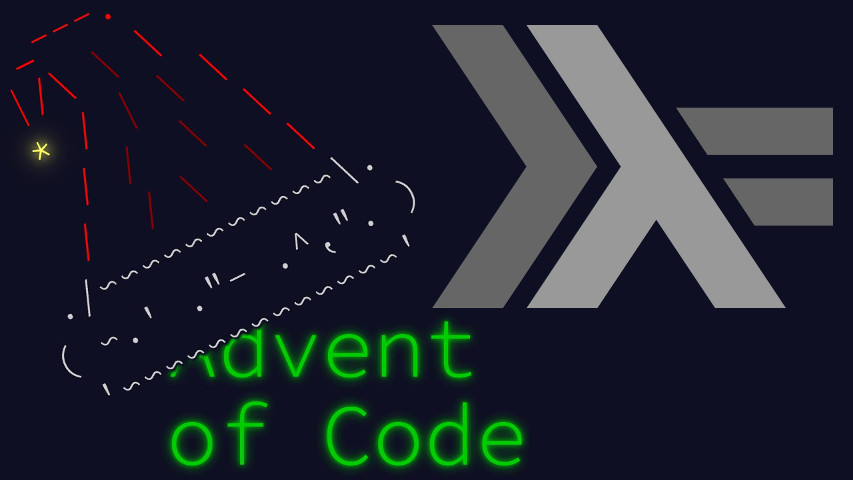In today’s Advent of
Code puzzle, we’re moving stacks of plates crates
around.
In the usual clash of literate programming with Haskell’s strict code ordering, here’s a bunch of imports to start this literate Haskell post.
import Data.Array (Array,(!),(//),listArray,elems)
import Data.Char (isSpace)
import Data.List (foldl',transpose)We’re handling stacke of crates. Crates display a letter, so let’s
store that in a Char. Instructions refer to stacks by
index, so let’s store those in an Array for
performance convenience.
type Stacks = Array Int [Char]The parsing could be the most complex here. But in a twist of bad luck, today’s problem is more interesting than the two previous ones, so I won’t indulge too much detail here.
In a nutshell: I’m splitting by paragraphs to separate the initial stacks from the instructions. Stacks are then parsed in a very crude “only read very specific indices” way. Instructions are parsed in a no less crude “expect very specific words in very specific positions, and read decimal elsewhere”.
parse :: String -> (Stacks,[(Int,Int,Int)])
parse (lines -> break null -> (init -> stacks,tail -> steps)) =
( listArray (1,9) $
dropWhile isSpace <$>
transpose (extractCrates <$> stacks)
, parseStep <$> steps
)
where
extractCrates l = [ l !! i | i <- [1,5,9,13,17,21,25,29,33] ]
parseStep (words -> ["move",n,"from",from,"to",to]) =
(read n,read from,read to)Yes, [1,5,9,13,17,21,25,29,33] is shorter than
[1+4*i|i<-[0..8]] if you actually tolerated inserting a
reasonable amount of whitespace.
Now most of the puzzle is simply implementing our state transition function.
step1,step2 :: Stacks -> (Int,Int,Int) -> StacksIn part 1, we move crates one by one. So we implement the state transition recursively, moving one crate at each iteration.
step1 stacks (0,_,_) = stacks
step1 stacks (n,from,to) =
let h:t = stacks ! from
in step1 (stacks // [(from,t),(to,h:stacks!to)]) (n-1,from,to)In part 2, we move crates all at once. No more recursion needed!
step2 stacks (n,from,to) =
let (top,bot) = splitAt n (stacks!from)
in stacks // [(from,bot),(to,top ++ stacks!to)]All that’s left is wrap it up.
main :: IO ()
main = do
(stacks,procedure) <- parse <$> getContents
let result1 = foldl' step1 stacks procedure
result2 = foldl' step2 stacks procedure
putStrLn (head <$> elems result1)
putStrLn (head <$> elems result2)You undoubtedly noticed I didn’t demonstrate any point-free abuse this time. The problem was that much more interesting.
Anyway, that’s it for today. See you tomorrow!



